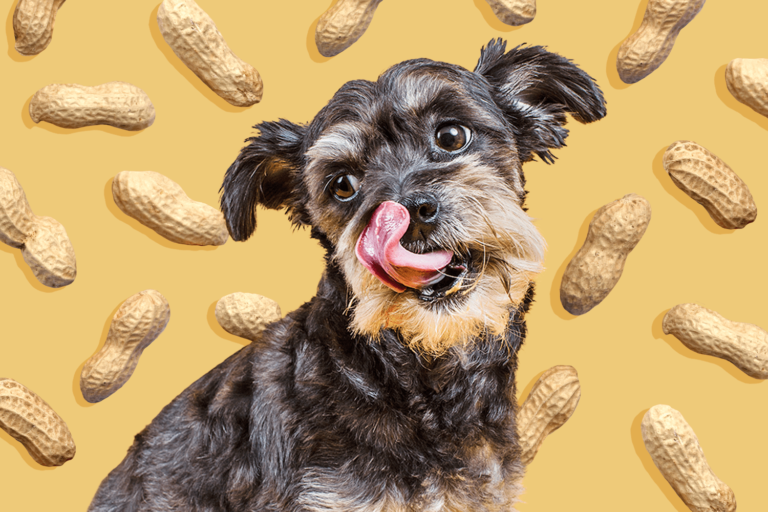Are peanuts safe for dogs? If you’ve ever caught your furry friend eyeing your snack bowl, you’re not alone. Peanuts are a household favorite, and many pet owners wonder: can dogs eat peanuts? Let’s break it down with science-backed insights and pet-safe tips to help you make the best choices for your pup’s snack time.
Are Peanuts Safe for Dogs?
Yes—but with caution. Peanuts aren’t toxic to dogs, but that doesn’t mean they should gobble them freely. Like any treat outside of your dog’s regular diet, moderation and preparation are key.
Quick tip: Always opt for unsalted, unflavored, and dry-roasted or raw peanuts. Avoid salted, seasoned, or chocolate-covered peanuts at all costs.
Health Benefits of Peanuts for Dogs
Peanuts are more than just tasty—they’re nutrient-packed too. When fed in moderation, they can offer your dog:
- Protein: Helps build and maintain muscle mass.
- Healthy fats: Supports coat health and energy levels.
- Vitamin B6: Essential for brain function.
- Niacin: Supports digestion and skin health.
- Vitamin E: An antioxidant that supports immunity.
However, don’t let these benefits fool you—peanuts are also high in fat and calories, which can cause problems if overfed.
When Peanuts Become a Problem
Feeding your dog too many peanuts, or the wrong type, can lead to:
- Weight gain
- Pancreatitis (inflammation of the pancreas)
- Digestive upset like diarrhea or vomiting
Note: If your dog is overweight or prone to sensitive digestion, peanuts might not be the best snack option.
What About Peanut Butter?
Good news: Both creamy and crunchy peanut butter are usually safe—as long as they’re natural and don’t contain xylitol, a common sweetener that’s extremely toxic to dogs.
Safe:
- Natural peanut butter (no sugar, salt, or xylitol)
Unsafe:
- Peanut butter with xylitol
- Peanut butter-flavored snacks or treats for humans
Pro tip: Use peanut butter to hide pills or as a reward during training—but only in small amounts!
How Many Peanuts Can Dogs Eat?
There’s no one-size-fits-all answer, but here’s a general guide:
| Dog Size | Safe Peanut Serving |
| Small (under 20 lbs) | 2–3 peanuts, 1–2 times a week |
| Medium (20–50 lbs) | 4–5 peanuts, 1–2 times a week |
| Large (50+ lbs) | 5–6 peanuts, 2–3 times a week |
Always introduce new foods gradually and watch for signs of allergies like itching, swelling, or tummy trouble.
Peanuts to Avoid
Some types of peanuts can do more harm than good:
- Salted peanuts – Too much sodium can cause dehydration or salt poisoning.
- Flavored peanuts – Often contain spices, sugar, or artificial ingredients.
- Peanut shells – Hard to digest and can pose a choking hazard.
- Honey-roasted peanuts – High in sugar and calories.
Stick to the plainest version possible—your dog doesn’t care about fancy flavors, just the crunch!
Can Dogs Be Allergic to Peanuts?
While rare, some dogs can develop food allergies—including to peanuts. Signs may include:
- Constant scratching
- Ear infections
- Vomiting or diarrhea
- Skin rashes
If you notice any of these symptoms after feeding peanuts, stop immediately and consult your vet.
Final Verdict: Can Dogs Eat Peanuts?
Yes, but only in moderation and only the right kind. Peanuts can be a fun, tasty treat for your dog—but they should never replace a balanced diet. Always choose unsalted, raw or dry-roasted peanuts, and avoid anything with added ingredients.
Key Takeaways
- Peanuts are safe for dogs in small quantities.
- Choose natural, unsalted varieties.
- Avoid xylitol, peanut shells, and flavored peanuts.
- Monitor for allergies or digestive upset.
- Always consult your vet before introducing new treats.
💬 Got Questions?
Drop them in the comments below or share your dog’s favorite peanut snack with us! 🐕❤️


